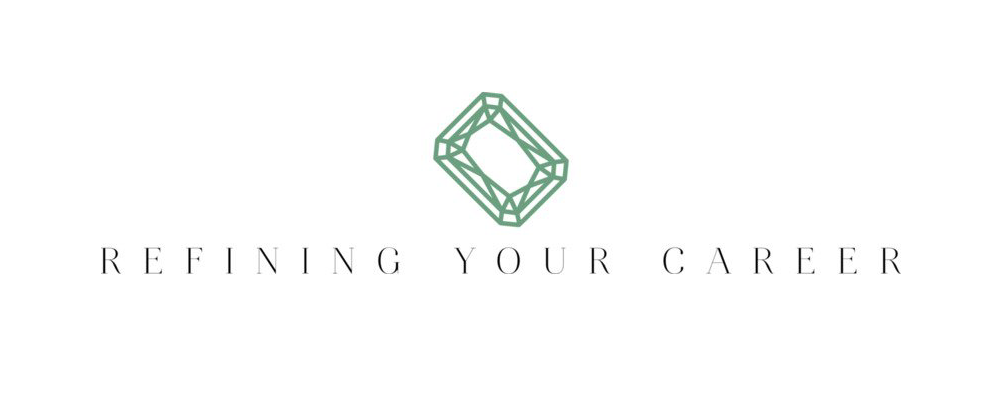Blog Layout
Tips for Writing a Resume That Gets You Noticed!
Kayla Eriksen • March 10, 2020
Today I’m sharing my tips for writing resumes that get noticed!
I get it! Writing a quality resume can be daunting. Did you know that your resume is filtered through a recruiting software and passes through many different hands before
it lands on the desk of a hiring manager? That’s right. Your resume will be screened through a software system that will review it and search the document for key words or phrases, ensuring you meet the minimum requirements of the role. After that, your resume will be forwarded on to several recruiters to review your experience. These recruiters then compare your resume to other candidates’ resumes while also screening it against the needs of the hiring manager.
So, with all of that said, how do you write a resume that will get you an interview? It’s not just luck, it’s strategy.
My first recommendation would be to hire someone.
A professional can offer an unbiased review of your work experience and help you see your hidden skills.
When working with clients, I’ve noticed that people tend to dismiss their greatest accomplishments for fear of “showboating” or coming across overly confident. In addition, people have the tendency to overlook skills that they do have without even realizing it. These overlooked skills are often critical skills that can be used across multiple industries. When you clam up on your resume and miss adding in critical skills, you risk getting skipped during the resume review process. If this happens, no matter how good you are, you’ll never get that much-desired face time with the hiring manager.
Recently, I worked with a client who had been a teacher but was looking for a new career outside of the classroom. Preferably one as a manager or in a salaried position. During our conversation, she easily listed off all of her most obvious skills. When we really started to home in on some of the critical skills she hadn’t listed, we realized she had missed some significant skills that would be desirable in a manager position. For example, as a teacher, she regularly dealt with change. Not only did she have to work with new students each year, but curriculums are always changing, as well as the teaching staff and leadership. By talking through her change management processes and confirming that she had developed these skills, we were able to modify her resume and now add to her list of skills. Talking through her own abilities with her also helped her with the confidence she would need to later explain her abilities in an interview.
Six tips for writing resumes that get noticed!
If you aren’t going to hire someone and want to try it out alone, I recommend you follow the below tips. While it’s not a comprehensive list of all the tips and tricks used by a professional, it does provide some great tools to get started.
1. Try to limit your resume to one page, if possible.
Hiring managers rarely want to see every detail of your work experience. The end goal is not to get hired based on your resume; it’s going to be based on your interview. The resume should be a teaser. If someone wants more information, they’re going to bring you in.
2. Keep all the good stuff on top.
This ties into tip #1, but the top half of your resume should provide enough information to inform the hiring manager that you are a qualified candidate for the role. The data varies, but many studies state that managers spend a shockingly low amount of time reviewing a resume — between 6 and 30 seconds per resume!
3. Keep your resume professional.
Use a professional format with an easy to read font. Double-check that your contact information is listed and accurate, and make sure you’re using a professional email address.
4. Watch for typos or grammatical errors.
Before you hit send, take the time to double-check your work. Look to make sure you used the correct form of “their,” “they’re,” or “there” or other commonly misspelled words. Save your document and come back to it when you have fresh eyes or send it off to a friend for review.
5. Unless required, avoid indicating your birth year or age.
Managers are not allowed to make hiring decisions based on the age of the candidate, but that doesn’t mean that unconscious bias can’t sneak in. Take control of the situation by removing your graduation dates from your resume. Your work history will help prove that you have the needed experience without indicating your age. This tip also applies to using your birth year in your email, so make sure you’ve made changes to your email address if necessary.
6. Avoid overly complicated language.
Because recruiters work to fill various positions throughout the company, they may not be experts when it comes to the details and needs of the open position.
Remember, writing an effective resume is all about drawing attention to yourself so you can get that desired call for an interview. Once you’re there, you can go into detail and share all of your accomplishments and prove your proficiencies.
My tips for acing the interview, however... well, that’s another post for a different day.
Do you plan on using my tips to write a resume? Have you ever considered hiring a professional?
Leave a comment below and tell me your thoughts!

By Kayla Eriksen
•
February 22, 2020
It's okay to change your mind! As I was driving my two small boys, ages 5 and 2, to their preschool the other day, we passed a construction zone. I heard my youngest remark that he wanted to wear a hardhat and be a construction worker when he grows up. As I started to tell him that was a great idea, I was interrupted by my five-year-old who said, “You can’t be a construction worker. You already chose to be a computer guy last week at career day!”


